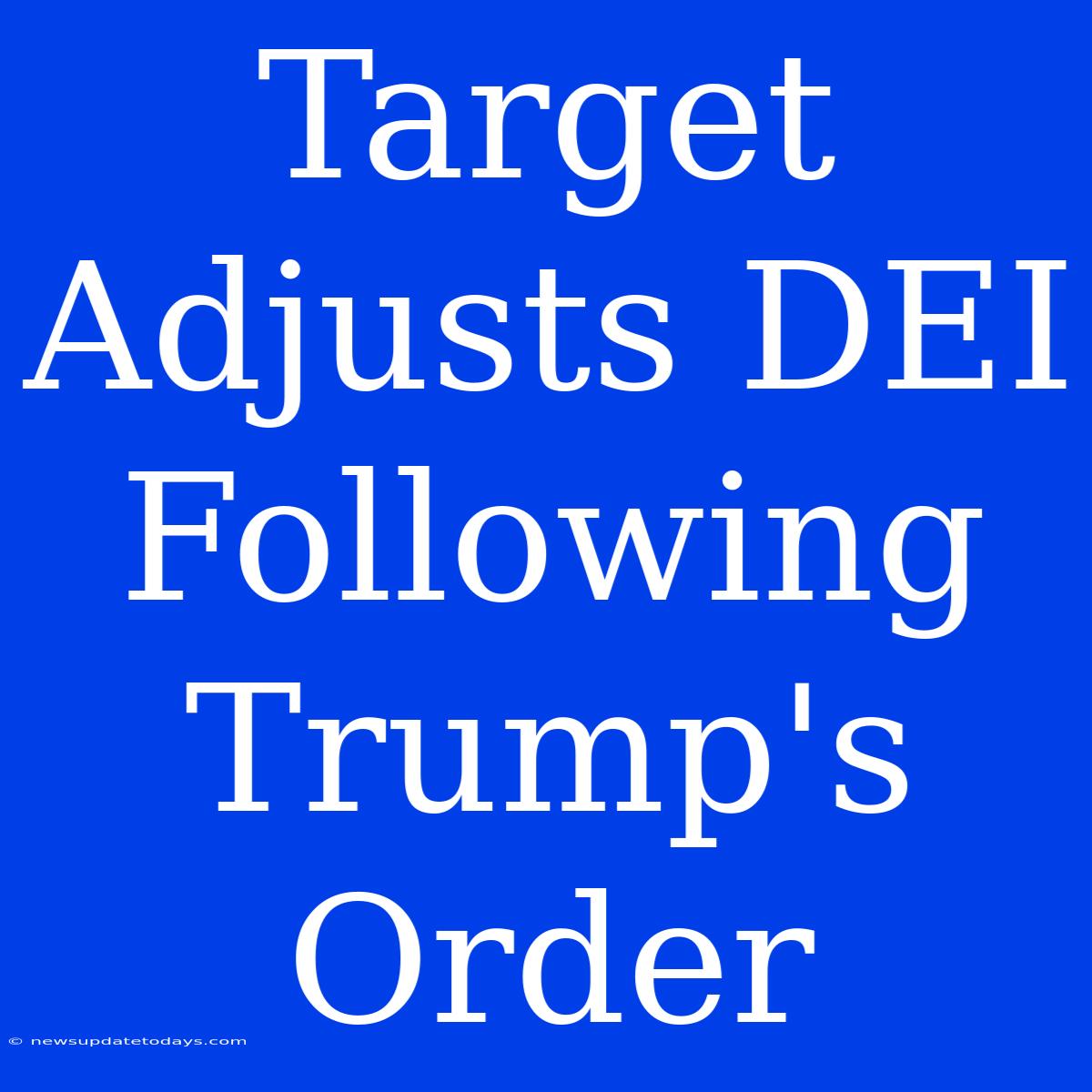Target Adjusts DEI Initiatives Following Trump's Executive Order: A Deeper Dive
Target's recent adjustments to its Diversity, Equity, and Inclusion (DEI) initiatives have sparked considerable debate. Following President Trump's executive order targeting critical race theory (CRT) and related DEI training in federal agencies, the retail giant made changes to its internal programs. This article delves into the specifics of these adjustments, analyzing their implications and the broader context of DEI in corporate America.
Understanding the Executive Order's Impact
President Trump's executive order, while not directly impacting private companies like Target, created a climate of uncertainty and prompted many corporations to reassess their DEI strategies. The order focused on preventing the teaching of divisive concepts, broadly interpreted to include aspects of CRT, in government-funded training. This fueled concerns among some businesses about potential legal challenges or negative public perception related to their DEI programs.
Target's Response: A Shift in Focus?
Target's response to this evolving landscape involved a subtle yet significant shift in its approach to DEI. While the company hasn't publicly detailed the exact nature of the adjustments, reports suggest a move towards a more inclusive, less overtly critical approach. This might include:
- Reframing training materials: Potentially revising training modules to avoid language or concepts that could be perceived as divisive or controversial.
- Emphasis on practical skills: Shifting the focus from theoretical discussions of systemic inequalities to practical skills training aimed at improving workplace culture and fostering inclusivity.
- Increased emphasis on individual merit: Reinforcing the importance of individual merit and achievement within the company's overall DEI framework.
It's crucial to note that Target maintains its commitment to DEI. The adjustments are likely driven by a strategic decision to navigate the complex legal and political environment while upholding its values.
The Broader Context: DEI in Corporate America
Target's experience reflects a broader trend in corporate America. Many companies are grappling with how to effectively implement DEI initiatives in a polarized political climate. The challenge lies in balancing the genuine desire to create a more equitable and inclusive workplace with the potential for backlash from those who oppose certain aspects of DEI training. This requires a nuanced approach that prioritizes collaboration, understanding, and clear communication.
Moving Forward: Navigating the DEI Landscape
The evolving landscape of DEI in corporate America necessitates careful consideration of several factors:
- Legal compliance: Staying informed about relevant laws and regulations impacting DEI initiatives.
- Stakeholder engagement: Openly communicating with employees, shareholders, and other stakeholders about DEI strategies and rationale.
- Data-driven approach: Using data to measure the effectiveness of DEI programs and adapt accordingly.
- Long-term commitment: Maintaining a long-term commitment to DEI as a core value rather than a reactive measure.
Target's adjustments are a case study in the ongoing evolution of corporate DEI. The company's approach highlights the complexities of balancing competing priorities in a rapidly changing environment. As the debate over DEI continues, businesses must find ways to foster inclusivity while navigating the sensitive political and legal considerations at play. The long-term success of DEI initiatives depends on a commitment to continuous improvement and adaptation.

